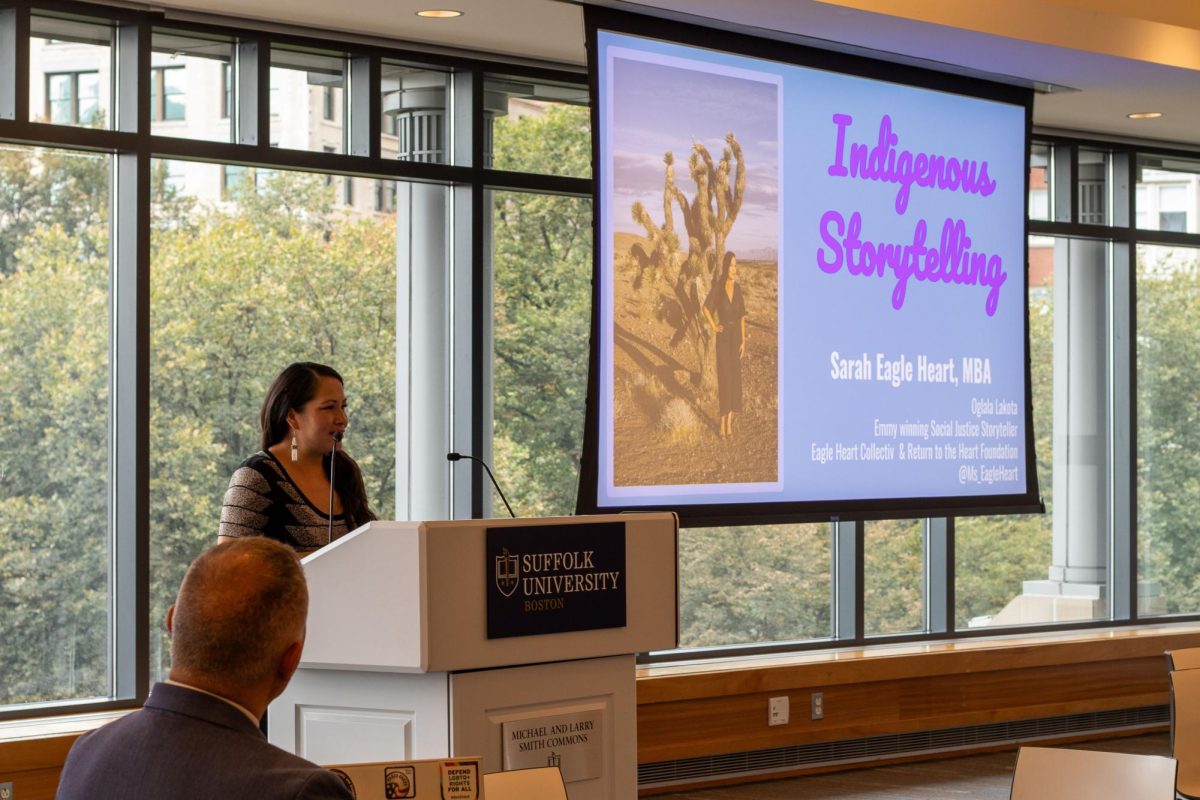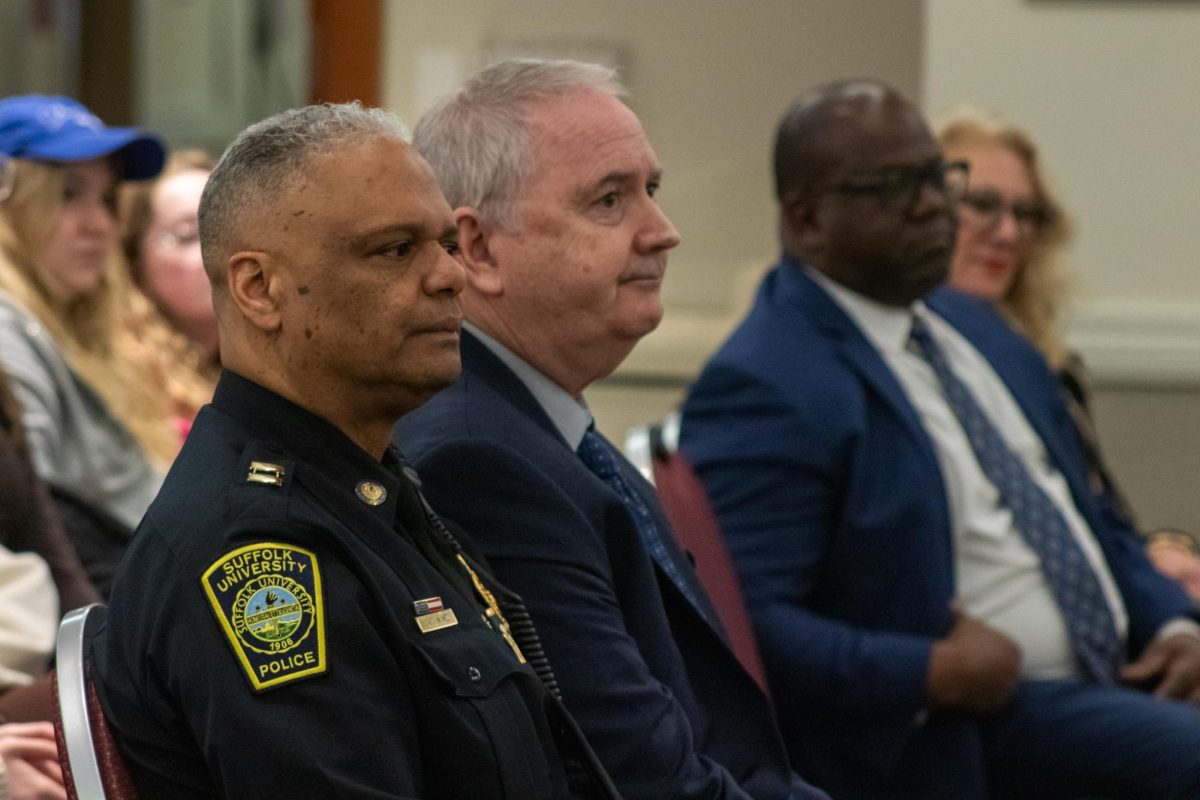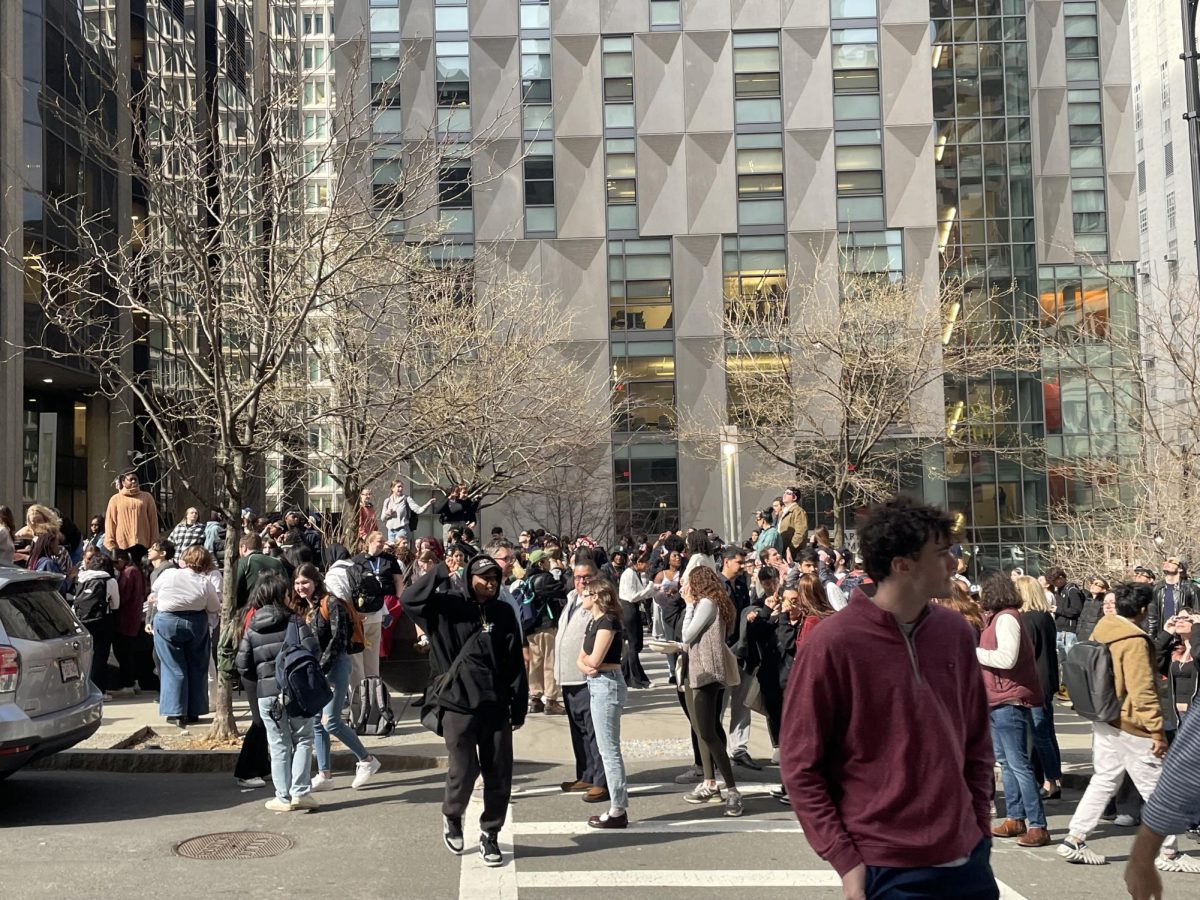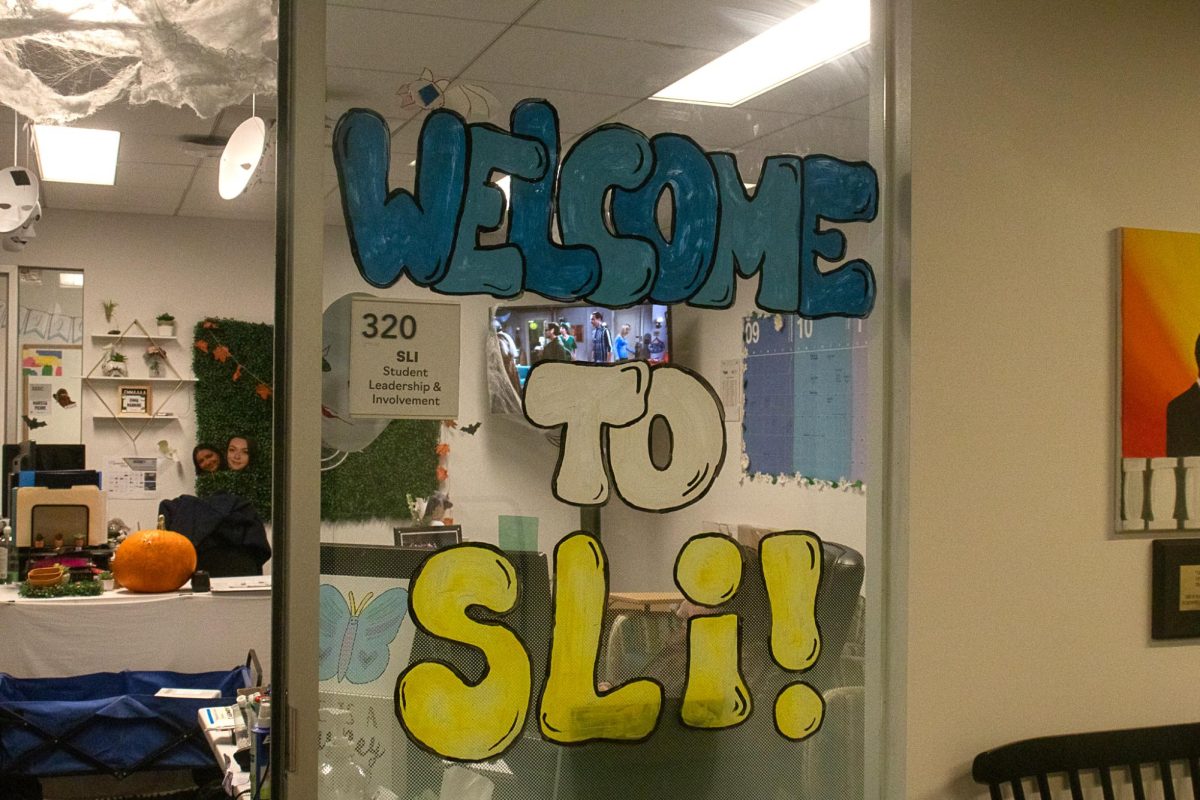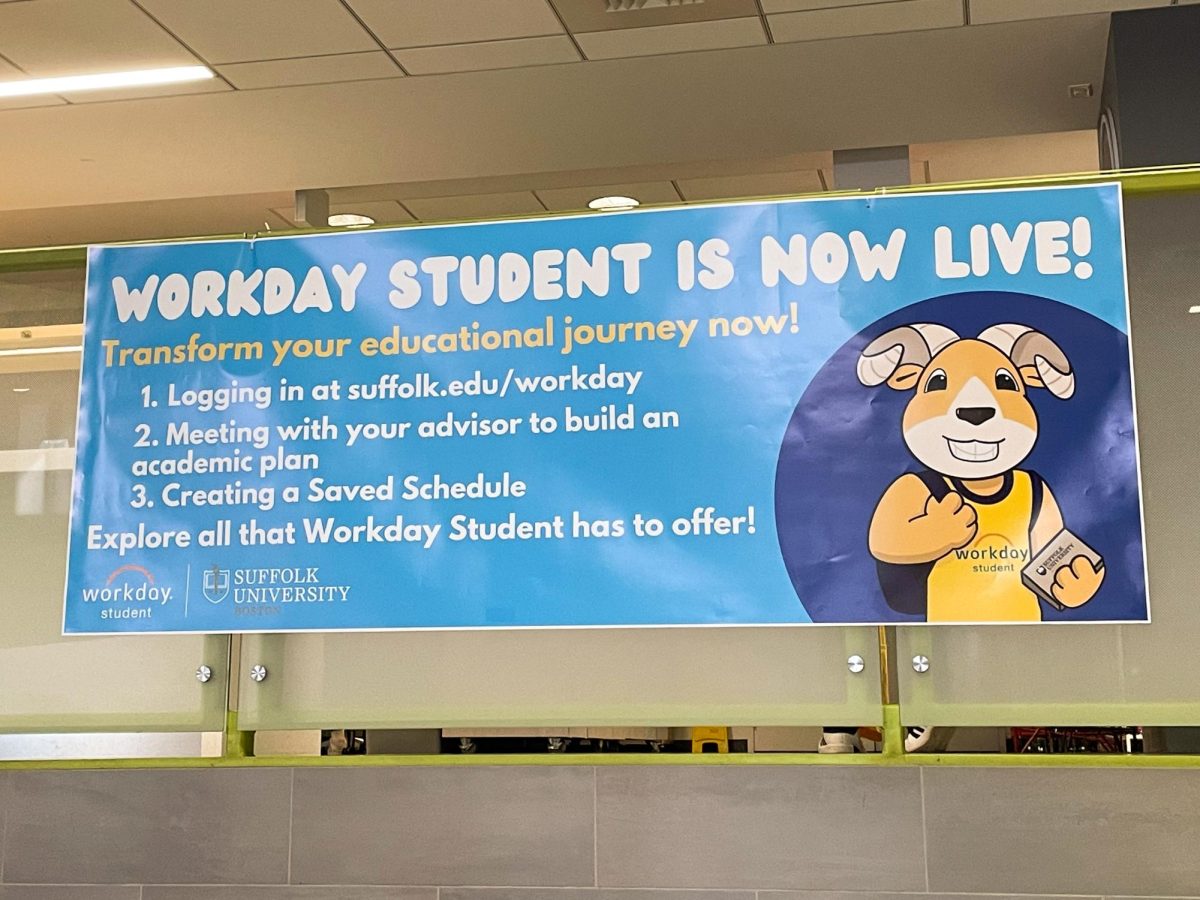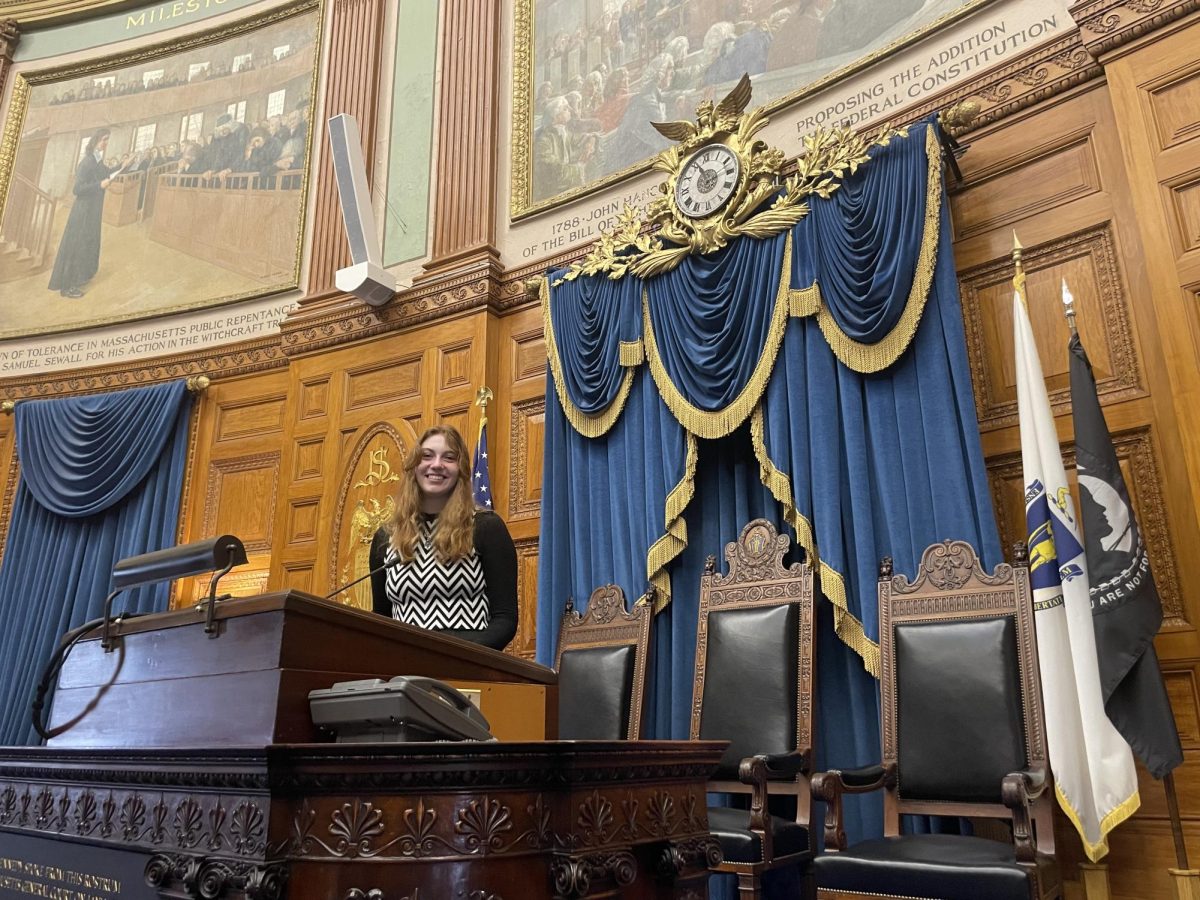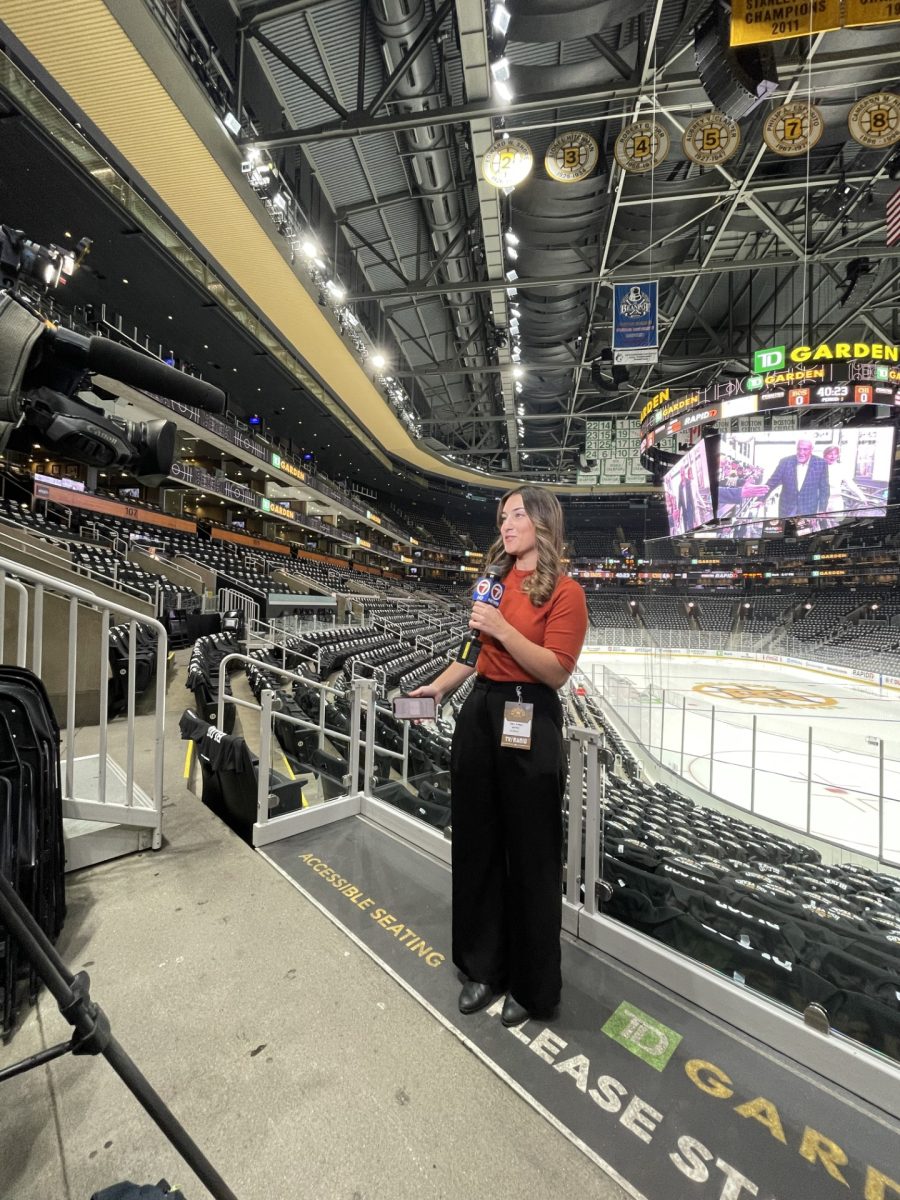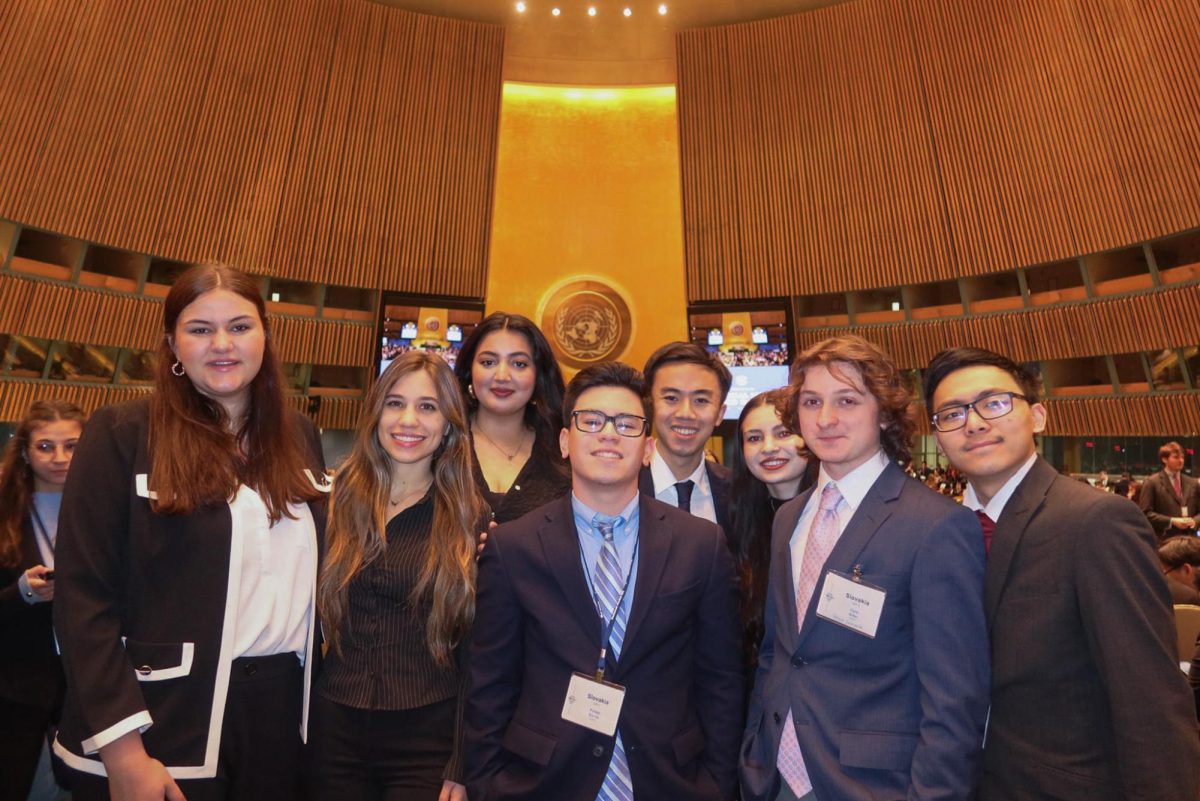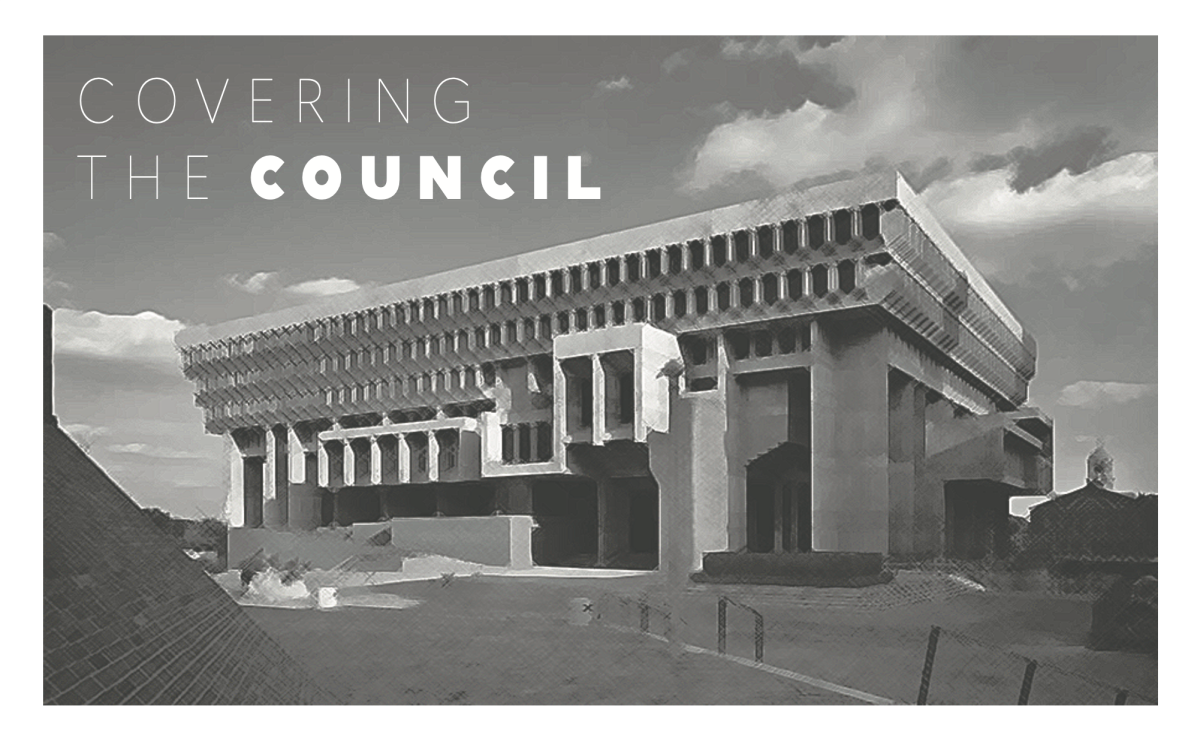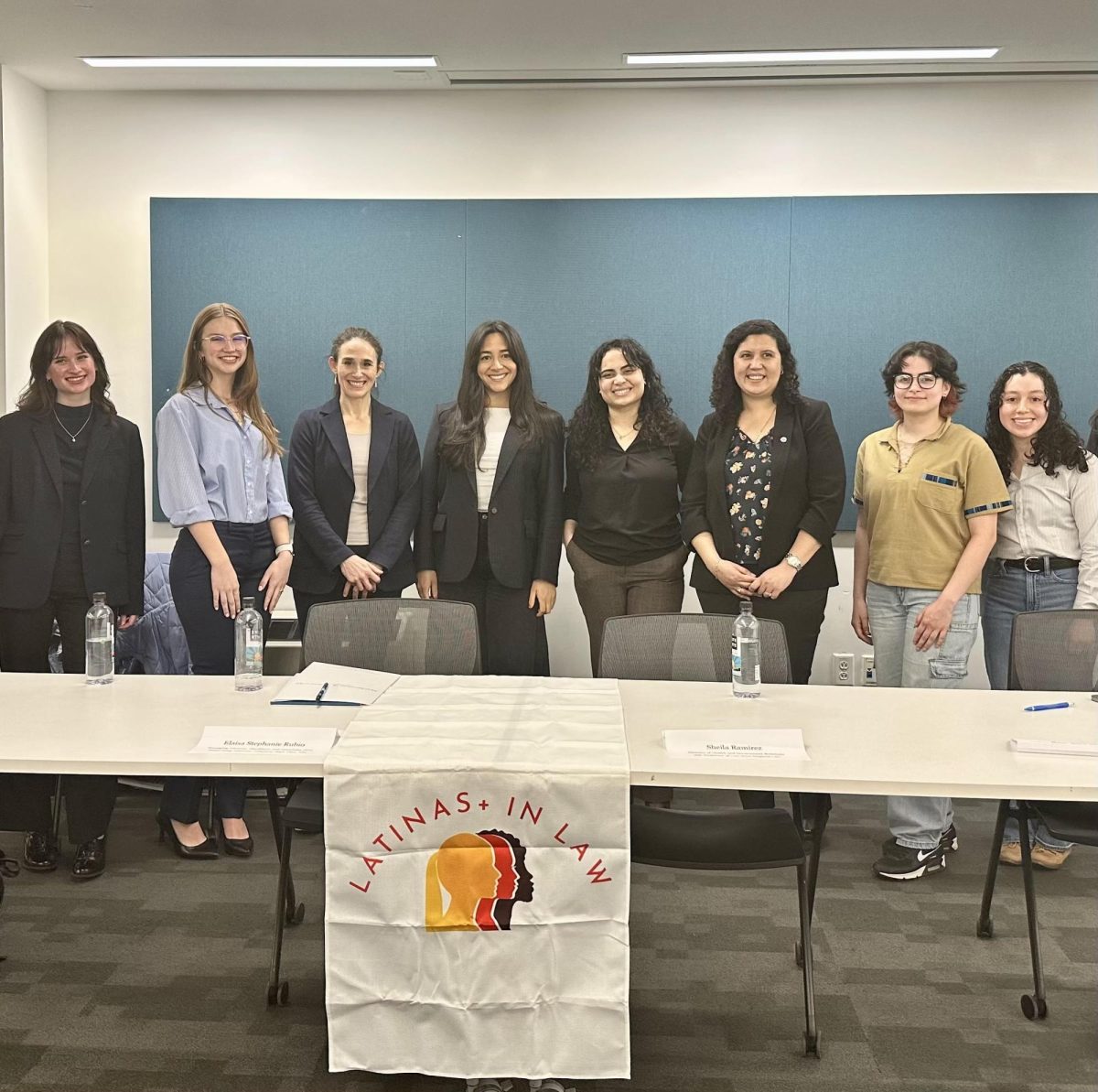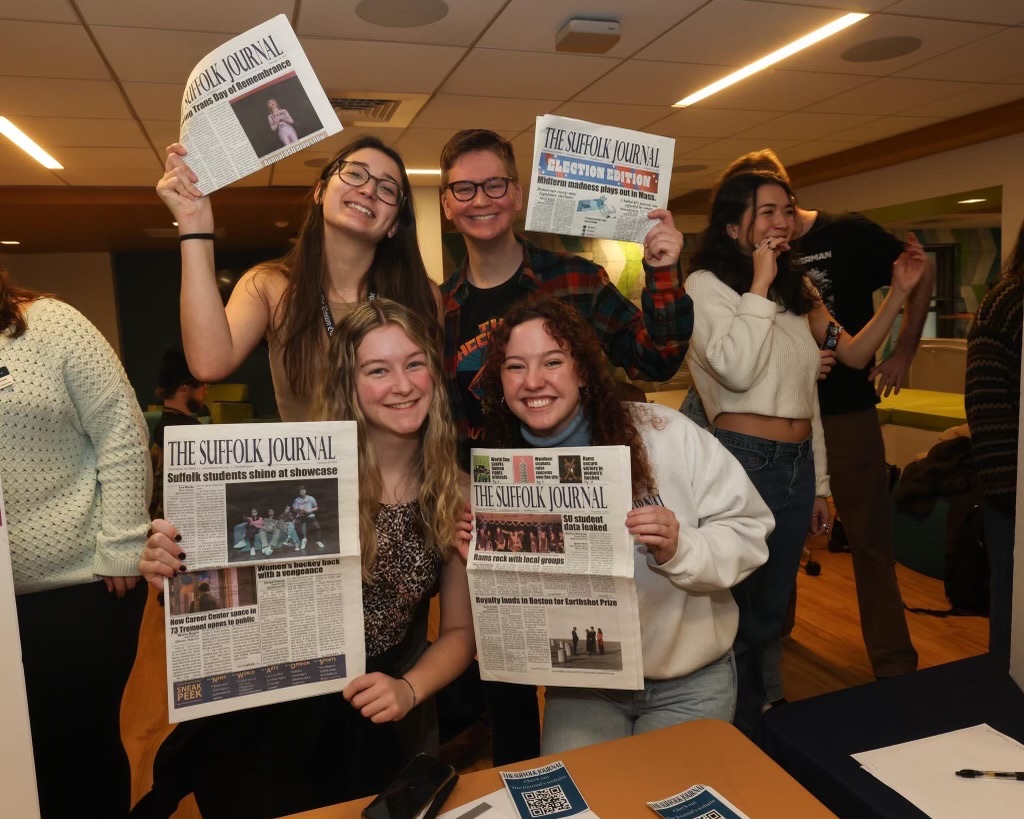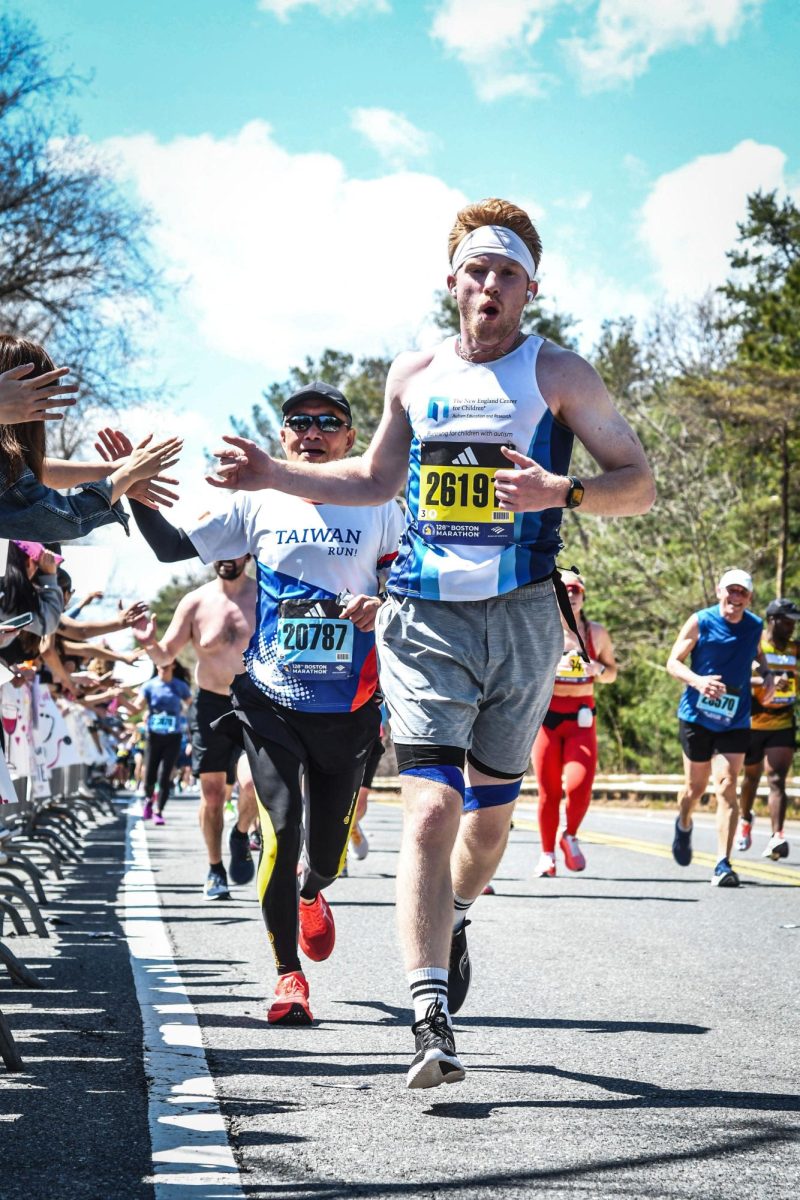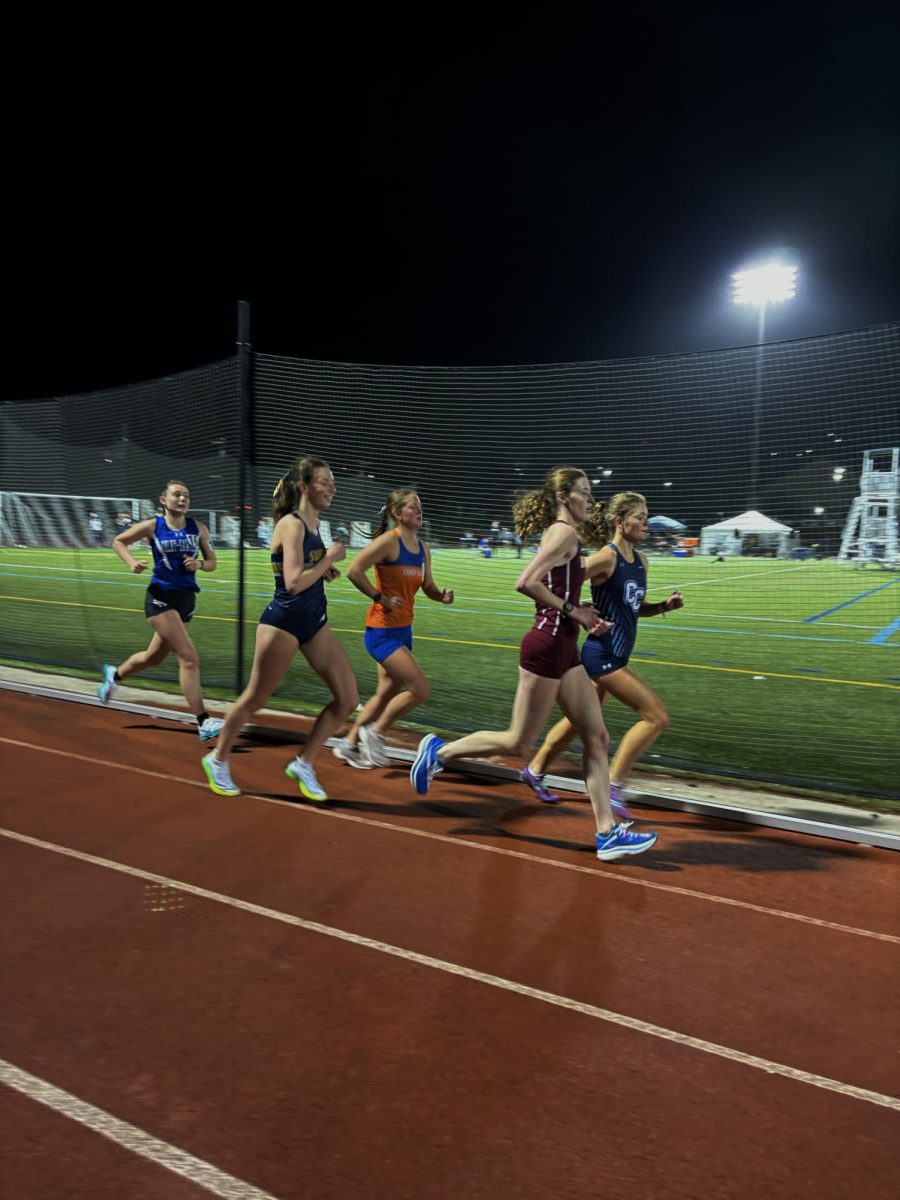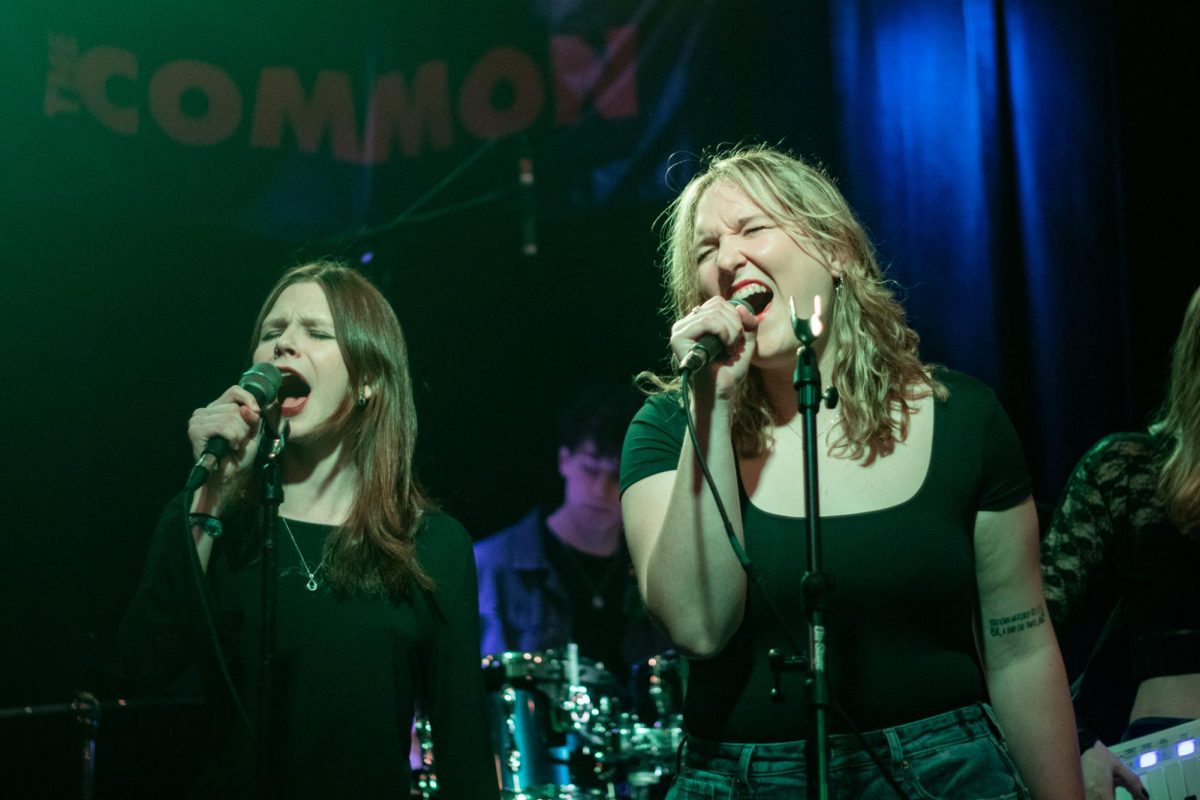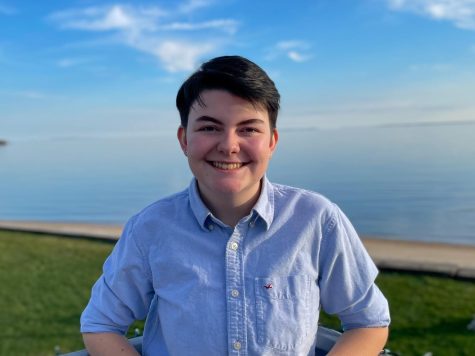Emmy-award winner Sarah Eagle Heart has been a storyteller for as long as she can remember. From her time as a reporter to her experiences as a writer and activist for Indigenous people, she fought to ensure that all stories were told, focusing on those that were historically ignored or whitewashed.
Eagle Heart shared these stories with the Suffolk community Oct. 10 in honor of Indigenous People’s Day at “The Healing Power of Storytelling: A deeper look at climate justice and the resistance of Indigenous People.”
Presented by the Center for Student Diversity and Inclusion, the event was held in the Smith Commons in Sargent Hall. Bea Patiño, director of CSDI, opened the event with a land acknowledgment to the Indigenous peoples whose land Suffolk University and Boston now reside on.
Eagle Heart, a member of the Oglala Lakota nation, fought for her community from a young age. As a teenager, she worked as a reporter for her local newspaper, Indian Country Today, covering tribal politics. She also helped organize protests at her high school which resulted in the removal of the school mascot and homecoming tradition where students parodied Native tribal members.
“I made a career of storytelling beginning at age 16, but being Lakota means I was born an activist as well,” she said.
After receiving her degrees in mass communications and American Indian studies from Black Hills State University, Eagle Heart’s career took her from working for the Presiding Bishop of the Episcopal Church in New York City to her role as the CEO of Native Americans in Philanthropy from 2015-2022.
Eagle Heart cited the racial tension and systemic disadvantages prevalent in the area she grew up between two Native American reservations as part of the motivation for her work in activism. Through her many titles, she has sought to bring awareness and action addressing the issues that disproportionately affect Indigenous people like mass incarceration, lack of mental health access and violence.
“My main driving force is really toward seeing an impact in my community home on the reservation in South Dakota,” Eagle Heart said.
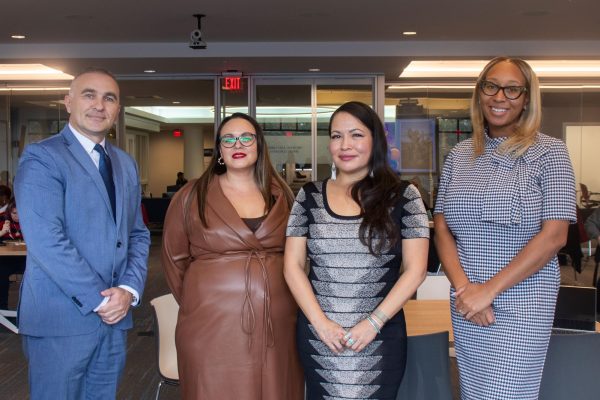
One of Eagle Heart’s most recent credits is as an executive producer of the documentary “Lakota Nation vs. the United States,” which focused on the conflict between the Indigenous peoples and European settlers in the Black Hills of South Dakota. The film, co-produced with actor Mark Ruffalo, premiered at the Tribeca Film Festival in 2022.
Eagle Heart’s Emmy was awarded for her role as a consulting producer on the interactive animated short “Crow: The Legend,” which depicts a Native American folktale.
Through a book written with her twin sister, Eagle Heart hoped to provide a contemporary account of the Lakota “original instructions” instilled in her from birth, traditionally passed down from generation to generation through oral storytelling.
“Warrior Princesses Strike Back: How Lakota Twins Fight Oppression and Heal through Connectedness” was also written with the goal of correcting the historical inaccuracies of previous documentations of Indigenous laws and traditions and proving that Indigenous people are not footnotes in history, but people whose culture continues to evolve as time goes on.
“A lot of the books out there are written by white men and they make us exist in historical times, so nobody thinks we exist anymore,” Eagle Heart said.
The book focuses on the Lakota philosophy of “mitakuye oyasin,” or “we are all connected,” and teaching the next generation of Lakota people to live according to it. At the end of each chapter, the sisters included lessons about Indigenous knowledge and ways to be an ally to Indigenous people.
Eagle Heart found her life has been guided by her upbringing and intuition, and while she never anticipated where it would lead her, she said she is proud to play a part in uplifting the voices of Indigenous people and their experiences through her storytelling.


